diarrhea support
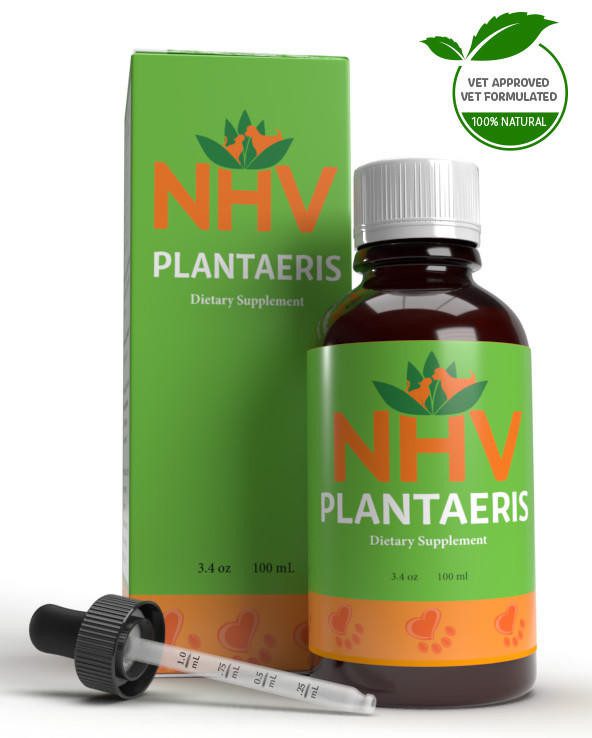
free shipping over $100 (USA & Canada)
1-877-937-4372 the pet expert hotline

Natural relief to help your cat’s diarrhea and inflammatory bowel syndrome (IBS)


IBS stands for Irritable Bowel Syndrome, a condition that affects millions of people in the United States and also causes digestive issues and gastrointestinal upset for our pets. Many people can confuse Irritable Bowel Syndrome (IBS) with Inflammatory Bowel Disease (IBD). IBS in pets is a psychosomatic disease, meaning that the mind is connected to the symptoms, and that episodes of IBS may be linked to stress, among other factors.
IBS in pets may be a difficult condition to understand at first, but there are many ways that you can help your pet manage this disease.
While the veterinary community is continuously learning more about the best ways to treat and manage this condition, holistic care can be very useful for providing relief and avoiding flare-ups.
A pet with IBS may present with a variety of symptoms, some of which can even contradict each other. The most prevalent symptoms are diarrhea and constipation, and these may be accompanied by bloating and gas, abdominal discomfort, and changes in eating habits. Episodes of these symptoms can arise due to food sensitivity or intolerance, stress, gastrointestinal infections, or genetic predisposition. These irritants can lead to the dysfunction of the intestinal muscles, disrupting the normal pattern of contractions. This wide range of causes may be why IBS can be particularly difficult for pet parents to manage, but we hope we may be able to provide our fellow pawrents with some holistic care strategies that will help.
First, if a pet is experiencing chronic digestive issues, it is important for these symptoms to be evaluated by a veterinarian. The veterinarian will be able to diagnose a pet with IBS by eliminating other potential diseases. They will likely order bloodwork, do an analysis of the stool to look for bacteria or parasites, perform an abdominal ultrasound to observe the structure and movements of the intestine, and test for viral infections.
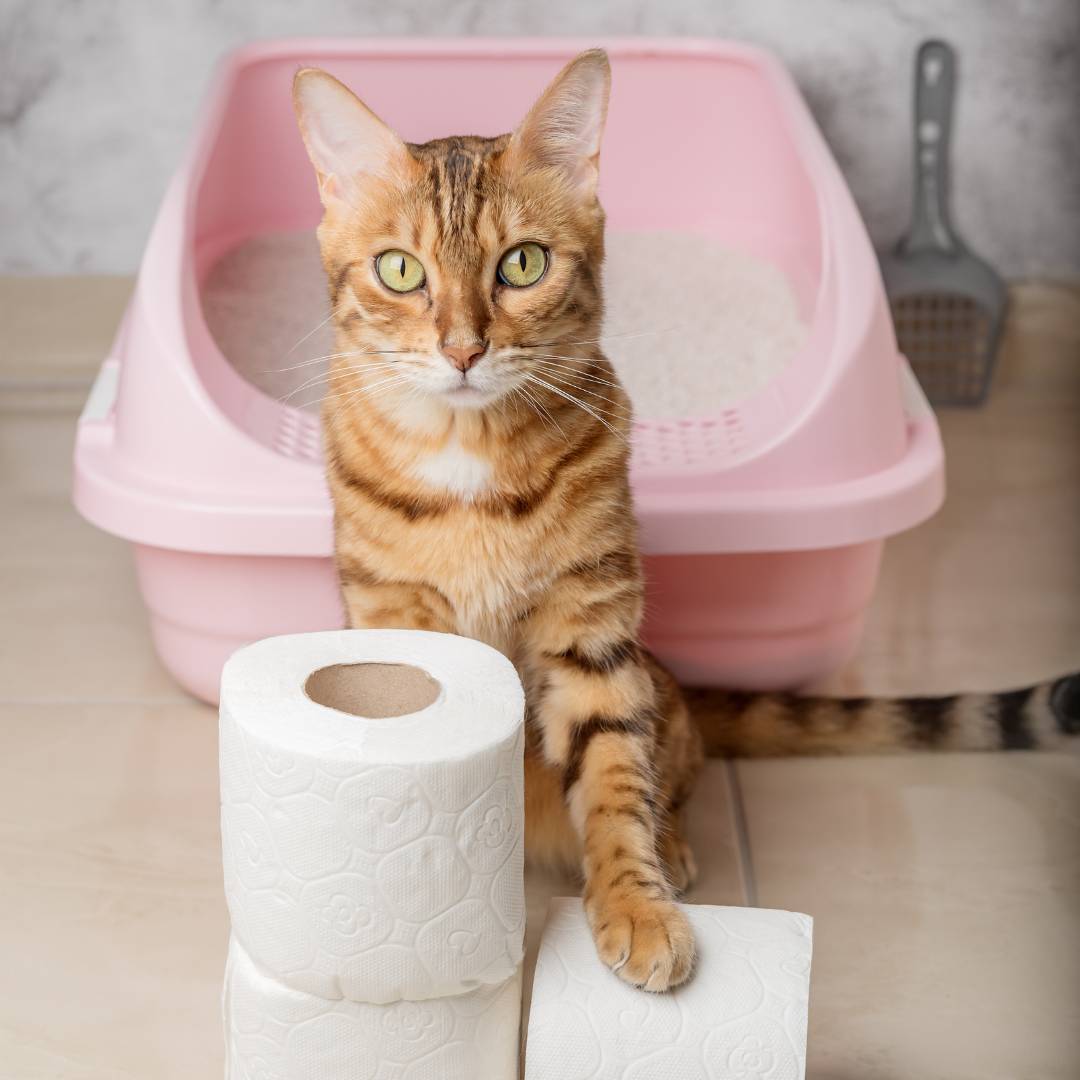
Once a diagnosis of IBS is confirmed, your veterinarian may recommend that your pet begins taking a probiotic and prebiotic or a fiber supplement, as well as other changes to their diet, and may prescribe medications for reducing stress. In addition to these suggestions, there are some natural remedies for symptoms of IBS and techniques for reducing stress to avoid flare-ups. NHV’s Plantaeris and NHV’s TumFlora are two supplements that may be helpful for promoting a healthy gastrointestinal tract, while NHV’s Yucca may also be beneficial for this condition as it reduces inflammation and discomfort.
NHV’s Plantaeris contains herbs which may help reduce inflammation and calm the gastrointestinal tract, relieving spasms and expelling gas. Due to the properties of NHV’s Yucca which may help to alleviate inflammation, it can also reduce pain and discomfort, thereby supporting the appetite and digestion. Other products that may be useful for supporting a pet with IBS would be probiotics and prebiotics. These products balance the gut environment by supplementing the biome of the gut with bacterial populations that help break down certain compounds of the diet.
Since episodes of IBS can be triggered by stress, it may also be beneficial to introduce a supplement like NHV’s Lesstress for dogs or NHV’s Matricalm for cats to help reduce anxiety, as well as to ensure regular exercise and provide your pet with a safe space in the home that they can retreat to, if needed.
IBS in pets may be a difficult condition to understand at first, but there are many ways that you can help your pet manage this disease. If your little one is frequently dealing with symptoms like diarrhea and constipation, it may be time for an assessment by a veterinarian.
For a holistic approach to dealing with IBS in pets, it is important to incorporate the recommendations of your veterinarian along with a regimen of supplements and natural supports. NHV’s digestive support supplements, Plantaeris and Tumflora, and NHV’s Yucca may provide proactive support for IBS by promoting a healthy gut environment. Probiotics and prebiotics may assist with balancing the gut microbiome, as well. Reducing stress in the home environment and regular visits to the veterinarian should help empower you to manage this disease, too. By implementing all of these strategies, we hope you will be able to ensure comfort for your furkiddo and relief from IBS symptoms.
diarrhea support

Natural relief to help your cat’s diarrhea and inflammatory bowel syndrome (IBS)
buy 2 and save $3
3 month supply for a small to medium size pet
What is it?
NHV Plantaeris is a natural vet-formulated supplement designed to gently help support normal bowel functions, while soothing and relieving spasms of the digestive tract.
How does it work?
Why trust it?
NHV Plantaeris is vet-formulated and vet-approved with only the finest natural herbs.

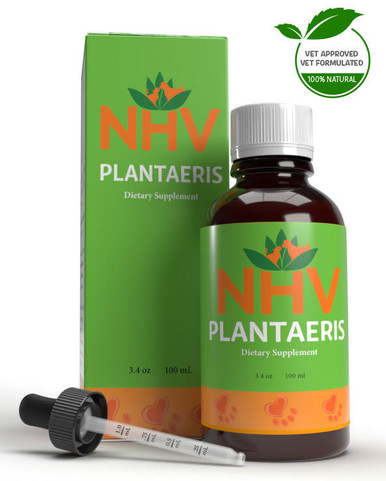
What is it?
NHV Plantaeris is a natural vet-formulated supplement designed to gently help support normal bowel functions, while soothing and relieving spasms of the digestive tract.
How does it work?
Why trust it?
NHV Plantaeris is vet-formulated and vet-approved with only the finest natural herbs.

Does your cat have diarrhea or loose stools?
Plantaeris is a gentle, natural vet-formulated supplement to help cat diarrhea. It is designed to help reduce symptoms of diarrhea and maintain normal bowel function. It also helps soothe and relieve spasms, and discomfort. Since this herbal formulation helps balance the body, it can be used on a longer-term basis if your cat suffers from frequent diarrhea (though it is vital to understand the underlying cause of diarrhea).
Diarrhea is a symptom of digestive disorders. In cats, it can be caused by inflammatory bowel disease, food allergies, parasites, or commonly an underlying condition, such as hyperthyroidism or kidney disease.
To help with cat diarrhea, make sure your pet is getting adequate water and nutrition as diarrhea can lead to weight loss, dehydration, vomiting, and lethargy. Remember that a cat can be eating the same food for years and still develop a food allergy to it. Talk to your vet to rule out any underlying conditions.
For days when your cat is suffering from acute diarrhea, the Plantaeris dosage may be safely doubled. You can then bring down the dosage to normal after the episode has passed. Try adding a bit of pumpkin to their diet to help bulk up stools.
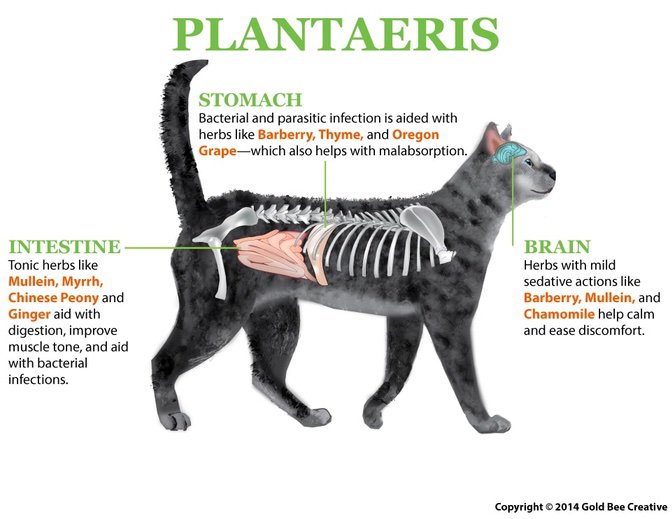
Barberry – Has traditionally been used to treat diarrhea, relieve stomach upset, and to reduce stomach acid.
Mullein – Soothes and lubricates tissues. Mullein’s medicinal properties help fight diarrhea-causing bacteria.
Bayberry – Contains tannins, resins, and gums that control bacterial infection.
Myrrh – Relieves spasms, inflammation, and digestive discomfort.
Thyme – Improves digestion and relaxes spasms. Thyme has traditionally been used to help expel gas, expel worms, and to help with IBD and colitis.
Chamomile – Relaxes the digestive system. It helps expel gas and helps reduce vomiting caused by IBD and is helpful with indigestion.
Chinese Peony – Reduces inflammation and relaxes spasms.
Ginger – Relieves discomfort and stimulates circulation. The enzymes in ginger encourage the production of gastric juices required for digestion. It helps reduce muscle contractions of the bowel, which helps eliminate waste without causing discomfort.
Oregon Grape – Helps relieve indigestion and malabsorption.
Select your pet's weight to determine the correct dose.
To be taken twice daily. Determine your pet’s weight and then use the easy chart below to determine the correct dose. This is the minimum dosage.
Pet's Weight Dosage
0 - 15 lb = 0.5 ml
16 - 30 lb = 1.0 ml
31 - 45 lb = 1.5 ml
46 - 60 lb = 2.0 ml
61 - 75 lb = 2.5 ml
Over 75 lb = 3.0 ml
How to Administer
Shake well before use. The easiest method is to use the dropper provided and place the drops into your pet’s food or favorite treat. You can also use the dropper and squirt directly into the pet’s mouth.
Some pets can be finicky. If this occurs consider hiding the drops in foods most pets love, such as fish, chicken, yogurt or a favorite treat. If your pet only eats dry food then soak a few kibbles at feeding time.
For Best Results
Herbal dietary supplements are beneficial to the health and wellbeing of your pet and are safe for long-term use. Every pet responds to natural herbal supplements differently, therefore it is important to be consistent and administer the product daily. Supplements generally take two to four weeks to take effect; however, this will vary from one animal to the next.
Product Storage
All NHV Natural Pet Products are pure herbal extracts and contain no artificial additives, preservatives or coloring. Shelf life after opening is 6 months and products must be refrigerated after opening.
Cautions and Contraindications
Do not use Plantaeris in pregnant or nursing animals. Speak to your vet before using our products. A second visit is recommended if your pet’s condition does not improve, or deteriorates after continued use of the supplements.
All information provided by NHV Natural Pet Products is for educational purposes only.
Does your cat have diarrhea or loose stools?
Plantaeris is a gentle, natural vet-formulated supplement to help cat diarrhea. It is designed to help reduce symptoms of diarrhea and maintain normal bowel function. It also helps soothe and relieve spasms, and discomfort. Since this herbal formulation helps balance the body, it can be used on a longer-term basis if your cat suffers from frequent diarrhea (though it is vital to understand the underlying cause of diarrhea).
Diarrhea is a symptom of digestive disorders. In cats, it can be caused by inflammatory bowel disease, food allergies, parasites, or commonly an underlying condition, such as hyperthyroidism or kidney disease.
To help with cat diarrhea, make sure your pet is getting adequate water and nutrition as diarrhea can lead to weight loss, dehydration, vomiting, and lethargy. Remember that a cat can be eating the same food for years and still develop a food allergy to it. Talk to your vet to rule out any underlying conditions.
For days when your cat is suffering from acute diarrhea, the Plantaeris dosage may be safely doubled. You can then bring down the dosage to normal after the episode has passed. Try adding a bit of pumpkin to their diet to help bulk up stools.

Barberry – Has traditionally been used to treat diarrhea, relieve stomach upset, and to reduce stomach acid.
Mullein – Soothes and lubricates tissues. Mullein’s medicinal properties help fight diarrhea-causing bacteria.
Bayberry – Contains tannins, resins, and gums that control bacterial infection.
Myrrh – Relieves spasms, inflammation, and digestive discomfort.
Thyme – Improves digestion and relaxes spasms. Thyme has traditionally been used to help expel gas, expel worms, and to help with IBD and colitis.
Chamomile – Relaxes the digestive system. It helps expel gas and helps reduce vomiting caused by IBD and is helpful with indigestion.
Chinese Peony – Reduces inflammation and relaxes spasms.
Ginger – Relieves discomfort and stimulates circulation. The enzymes in ginger encourage the production of gastric juices required for digestion. It helps reduce muscle contractions of the bowel, which helps eliminate waste without causing discomfort.
Oregon Grape – Helps relieve indigestion and malabsorption.
Select your pet's weight to determine the correct dose.
To be taken twice daily. Determine your pet’s weight and then use the easy chart below to determine the correct dose. This is the minimum dosage.
Pet's Weight Dosage
0 - 15 lb = 0.5 ml
16 - 30 lb = 1.0 ml
31 - 45 lb = 1.5 ml
46 - 60 lb = 2.0 ml
61 - 75 lb = 2.5 ml
Over 75 lb = 3.0 ml
How to Administer
Shake well before use. The easiest method is to use the dropper provided and place the drops into your pet’s food or favorite treat. You can also use the dropper and squirt directly into the pet’s mouth.
Some pets can be finicky. If this occurs consider hiding the drops in foods most pets love, such as fish, chicken, yogurt or a favorite treat. If your pet only eats dry food then soak a few kibbles at feeding time.
For Best Results
Herbal dietary supplements are beneficial to the health and wellbeing of your pet and are safe for long-term use. Every pet responds to natural herbal supplements differently, therefore it is important to be consistent and administer the product daily. Supplements generally take two to four weeks to take effect; however, this will vary from one animal to the next.
Product Storage
All NHV Natural Pet Products are pure herbal extracts and contain no artificial additives, preservatives or coloring. Shelf life after opening is 6 months and products must be refrigerated after opening.
Cautions and Contraindications
Do not use Plantaeris in pregnant or nursing animals. Speak to your vet before using our products. A second visit is recommended if your pet’s condition does not improve, or deteriorates after continued use of the supplements.
All information provided by NHV Natural Pet Products is for educational purposes only.
Probiotic for Gut Health
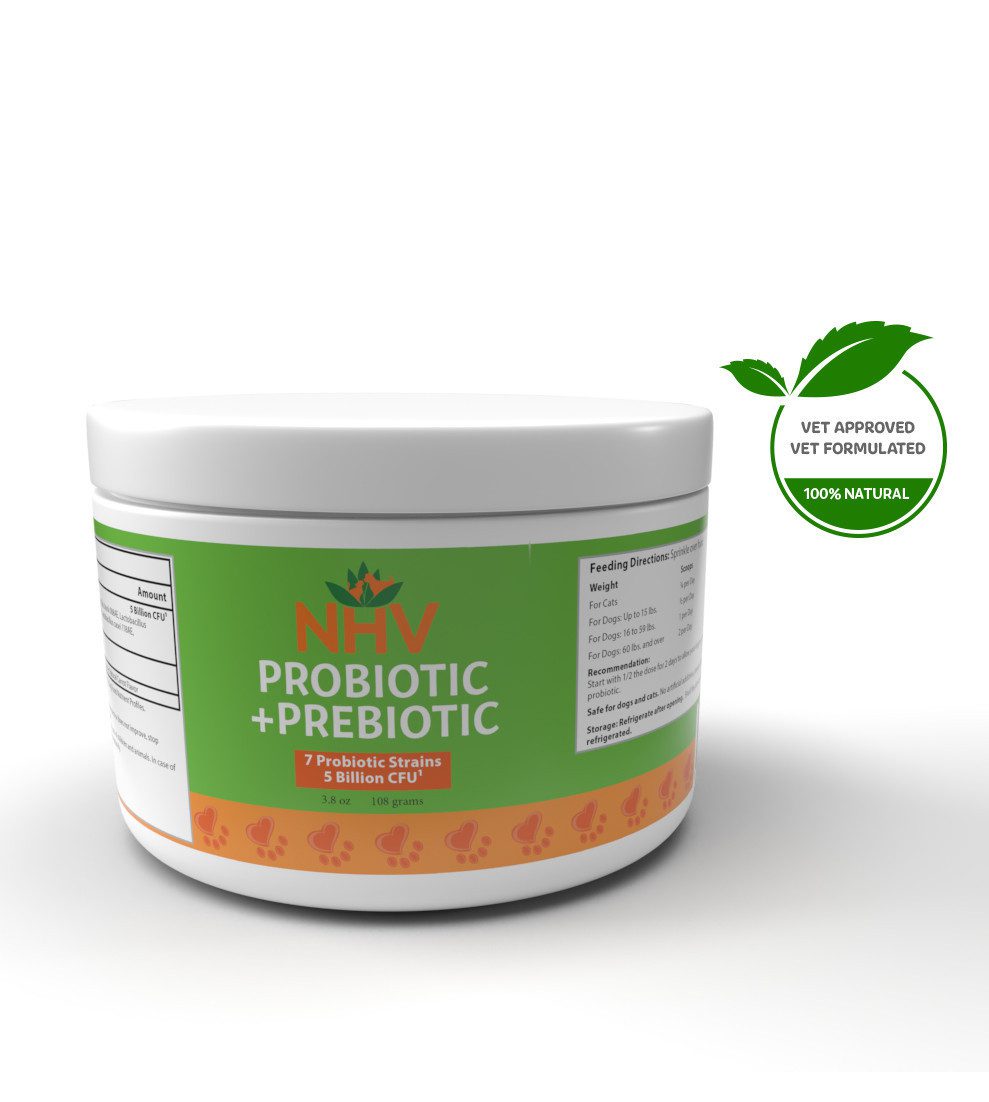
Vet-formulated. Helps with gut, immune, and anxiety support
buy 2 and save $3
4 month supply for a small to medium size pet.
What is it?
NHV Probiotics + Prebiotics for dogs help maintain that balance and support a healthy GI tract in your little one. It comprises of 7 strains of high-quality probiotics, with each scoop containing 5 Billion CFU (Colony Forming Units - the active good bacteria).
How Does it Work?
Why Should I Trust It?
100% natural, vet-approved, and vet-formulated pet remedy.


What is it?
NHV Probiotics + Prebiotics for dogs help maintain that balance and support a healthy GI tract in your little one. It comprises of 7 strains of high-quality probiotics, with each scoop containing 5 Billion CFU (Colony Forming Units - the active good bacteria).
How Does it Work?
Why Should I Trust It?
100% natural, vet-approved, and vet-formulated pet remedy.

Our sweet pups’ digestive systems are very delicate. That’s why, in times of sickness or stress, they may experience diarrhea, cramping, and bad breath due to an imbalance between beneficial and harmful microbes (e.g. a disease-causing bacteria). NHV Probiotics + Prebiotics for dogs help maintain that balance and support a healthy GI tract in your little one. It comprises of 7 strains of high-quality probiotics, with each scoop containing 5 Billion CFU (Colony Forming Units - the active good bacteria).
As pet parents, we are constantly looking for ways to keep our furkiddos happy and healthy. An essential aspect of their well-being often revolves around maintaining a healthy digestive system. Just like in humans, a well-functioning gut is also vital for dogs, impacting their overall health and vitality. Our natural probiotics for dogs can help you achieve that. As a great proactive support, this supplement can be taken long-term to support your pup’s gut health and more.
First things first, let’s understand what are the roles of prebiotics and probiotics and their importance. Prebiotics are plant fibers that feed the “good” bacteria that are already in your pup's gut. They aren’t digested and they stay in the colon to promote the growth of beneficial bacteria.
Probiotics, on the other hand, are live bacteria and yeasts that offer numerous health benefits, especially for the digestive system! Essentially, prebiotics are food for probiotics. When ingested, they can help maintain a healthy balance of gut bacteria and support healthy gut function.
Now you understand the functions of prebiotics and probiotics individually, how can they work together to benefit your doggo? It could help in the following ways:
As mentioned, both prebiotics and probiotics help balance the amount of healthy bacteria in your little one. They work synergistically to restore the natural balance of the gut microbiome, ensuring that the friendly bacteria outweigh the harmful ones. This balance is crucial for a healthy digestive tract. It may help ease digestive discomfort and promote smoother digestion.
A healthy gut can be very helpful in balancing your pup’s immune system. By maintaining a balanced gut microbiome, prebiotics and probiotics contribute to a stronger immune response, helping your dog fend off disease.
Ever gotten that sting in your stomach when you’re stressed about something? Turns out, our dogs get that too. They may experience diarrhea in stressful situations like visiting a vet. That’s because stress and anxiety responses may affect the digestive flow of your little one and cause an upset stomach. Prebiotics and probiotics can play a role in supporting these issues.
*As extra support, our vet-formulated pro and prebiotic contains added pumpkin and carrot powder to help enhance the absorption of the supplement!
NHV supplements are 100% natural. They contain no artificial additives, preservatives, or chemicals. So rest assured they are completely safe for pet consumption!
Got questions about our probiotics supplement, your pup’s gut health, or anything else in the world of pet wellness? Feel free to reach out!
Add NHV Probiotic & Preboitic for Dogs to your cart now to give your sweetheart the care they deserve!
Besides prebiotics and probiotics for dogs, keeping them hydrated and opting for whole foods also help support your sweetie’s digestive health. It is also recommended that you always pay attention to the food ingredient labels when you shop for dog food. Look for whole, natural foods with no chemicals!
Our in-house vet can also make some personalized suggestions for your pet if you aren’t sure. Click here for more information.
Probiotics
Prebiotics
Inactive Ingredients: Improve supplement absorption
For dogs: by weight
0 - 15 lb = ½ scoop per day (FOUR months supply)
16 - 59 lb = 1 scoop per day (TWO months supply)
60 lb & over = 2 scoops per day (ONE month supply)
How to Administer
Sprinkle over food. It is recommended to start with HALF the dose for 2 days to allow your little one to acclimate to the probiotic.
Product Storage
All NHV Natural Pet Products contain no artificial additives, preservatives, or chemicals. The shelf life after opening is SIX months, and must be refrigerated after opening.
Cautions and Contraindications: Do not use in pregnant or nursing animals. Speak to your vet before using our products. A second visit is recommended if your pet’s condition does not improve, or deteriorates after continued use of the supplements.
Our sweet pups’ digestive systems are very delicate. That’s why, in times of sickness or stress, they may experience diarrhea, cramping, and bad breath due to an imbalance between beneficial and harmful microbes (e.g. a disease-causing bacteria). NHV Probiotics + Prebiotics for dogs help maintain that balance and support a healthy GI tract in your little one. It comprises of 7 strains of high-quality probiotics, with each scoop containing 5 Billion CFU (Colony Forming Units - the active good bacteria).
As pet parents, we are constantly looking for ways to keep our furkiddos happy and healthy. An essential aspect of their well-being often revolves around maintaining a healthy digestive system. Just like in humans, a well-functioning gut is also vital for dogs, impacting their overall health and vitality. Our natural probiotics for dogs can help you achieve that. As a great proactive support, this supplement can be taken long-term to support your pup’s gut health and more.
First things first, let’s understand what are the roles of prebiotics and probiotics and their importance. Prebiotics are plant fibers that feed the “good” bacteria that are already in your pup's gut. They aren’t digested and they stay in the colon to promote the growth of beneficial bacteria.
Probiotics, on the other hand, are live bacteria and yeasts that offer numerous health benefits, especially for the digestive system! Essentially, prebiotics are food for probiotics. When ingested, they can help maintain a healthy balance of gut bacteria and support healthy gut function.
Now you understand the functions of prebiotics and probiotics individually, how can they work together to benefit your doggo? It could help in the following ways:
As mentioned, both prebiotics and probiotics help balance the amount of healthy bacteria in your little one. They work synergistically to restore the natural balance of the gut microbiome, ensuring that the friendly bacteria outweigh the harmful ones. This balance is crucial for a healthy digestive tract. It may help ease digestive discomfort and promote smoother digestion.
A healthy gut can be very helpful in balancing your pup’s immune system. By maintaining a balanced gut microbiome, prebiotics and probiotics contribute to a stronger immune response, helping your dog fend off disease.
Ever gotten that sting in your stomach when you’re stressed about something? Turns out, our dogs get that too. They may experience diarrhea in stressful situations like visiting a vet. That’s because stress and anxiety responses may affect the digestive flow of your little one and cause an upset stomach. Prebiotics and probiotics can play a role in supporting these issues.
*As extra support, our vet-formulated pro and prebiotic contains added pumpkin and carrot powder to help enhance the absorption of the supplement!
NHV supplements are 100% natural. They contain no artificial additives, preservatives, or chemicals. So rest assured they are completely safe for pet consumption!
Got questions about our probiotics supplement, your pup’s gut health, or anything else in the world of pet wellness? Feel free to reach out!
Add NHV Probiotic & Preboitic for Dogs to your cart now to give your sweetheart the care they deserve!
Besides prebiotics and probiotics for dogs, keeping them hydrated and opting for whole foods also help support your sweetie’s digestive health. It is also recommended that you always pay attention to the food ingredient labels when you shop for dog food. Look for whole, natural foods with no chemicals!
Our in-house vet can also make some personalized suggestions for your pet if you aren’t sure. Click here for more information.
Probiotics
Prebiotics
Inactive Ingredients: Improve supplement absorption
For dogs: by weight
0 - 15 lb = ½ scoop per day (FOUR months supply)
16 - 59 lb = 1 scoop per day (TWO months supply)
60 lb & over = 2 scoops per day (ONE month supply)
How to Administer
Sprinkle over food. It is recommended to start with HALF the dose for 2 days to allow your little one to acclimate to the probiotic.
Product Storage
All NHV Natural Pet Products contain no artificial additives, preservatives, or chemicals. The shelf life after opening is SIX months, and must be refrigerated after opening.
Cautions and Contraindications: Do not use in pregnant or nursing animals. Speak to your vet before using our products. A second visit is recommended if your pet’s condition does not improve, or deteriorates after continued use of the supplements.
discomfort support
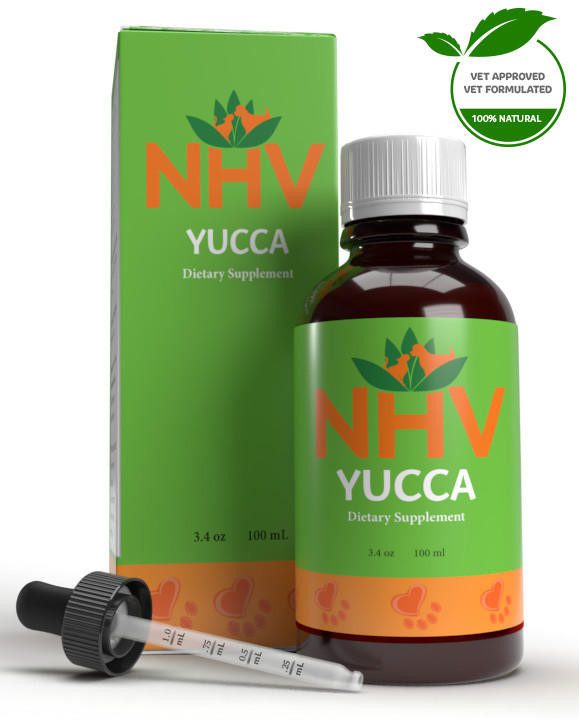
Discomfort Relief, Digestive Support, and Dog Appetite Booster
buy 2 and save $3
3 month supply for a small to medium size
What is it?
Yucca for dogs is an all-natural supplement that can be helpful in many circumstances by providing symptom relief related to inflammation, discomfort, and loss of appetite.
How does it work?
Why trust it?
NHV uses only human-grade herbs processed in a GMP-certified facility, so your pet gets the best natural support.


What is it?
Yucca for dogs is an all-natural supplement that can be helpful in many circumstances by providing symptom relief related to inflammation, discomfort, and loss of appetite.
How does it work?
Why trust it?
NHV uses only human-grade herbs processed in a GMP-certified facility, so your pet gets the best natural support.

Yucca root is widely used in dog food as well as in other pet foods. It is an herb that is highly nutritive as it is rich in vitamin C, beta-carotene, B vitamins, magnesium, iron, calcium, manganese, protein, niacin, and phosphorus. Yucca contains two very beneficial compounds: sarsasapogenin and smilagenin. These two compounds work on the mucous membranes of the small intestine. These compounds help with the penetration and absorption of minerals and vitamins. Sarsasapogenin and Smilagenin are known as steroidal saponins (phytosterols), which act as precursors to corticosteroids produced naturally by the body.
Steroidal-saponins support the immune function of the body while stimulating and supporting the production of its own corticosteroids and corticosteroid–related hormones. Due to this action, studies conducted on yucca have shown that it may be beneficial and effective for discomfort and inflammation in conditions such as arthritis. Yucca may also be effective as an appetite booster in dogs and may also help reduce the production of urease, which contributes to the unpleasant odors of urine and feces in some dogs.
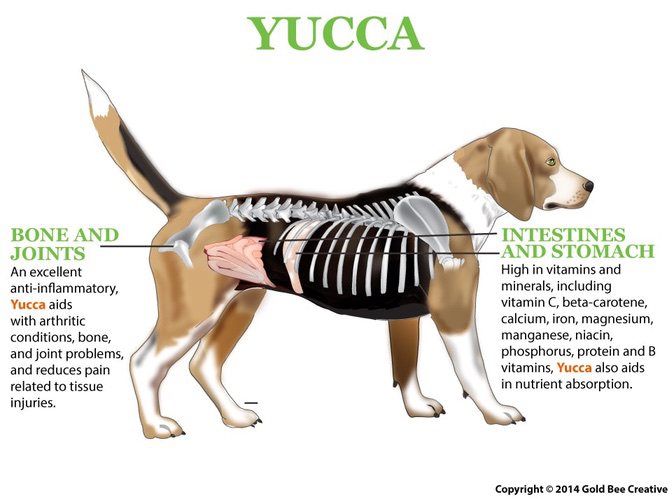
Yucca for dogs is commonly used for supporting arthritis, as an anti-inflammatory, nutritive, antitumor, and digestive. Yucca for dogs is considered a nutritive herb because it is rich in vitamins and minerals like vitamin C, beta-carotene, B vitamins, magnesium, iron, calcium, manganese, protein, niacin, and phosphorus.
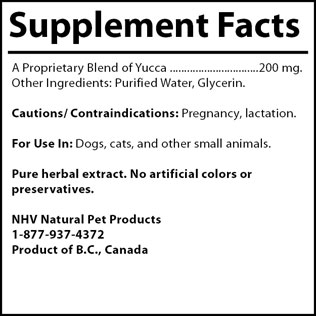
Select your pet's weight to determine the correct dose.
To be taken twice daily. Determine your pet’s weight and then use the easy chart below to determine the correct dose. This is the minimum dosage.
Pet's Weight Dosage
0 - 15 lb = 0.5 ml
16 - 30 lb = 1.0 ml
31 - 45 lb = 1.5 ml
46 - 60 lb = 2.0 ml
61 - 75 lb = 2.5 ml
Over 75 lb = 3.0 ml
How to Administer: Shake well before use. The easiest method is to use the dropper provided and place the drops into your pet’s food or favorite treat. You can also use the dropper and squirt directly into the pet’s mouth. Some pets can be finicky, if this occurs consider hiding the drops in foods most pet’s love such as fish, chicken or yogurt or a favorite treat. If your pet only eats dry food then soak a few kibbles at feeding time.
For Best Results: Herbal dietary supplements are beneficial to the health and well-being of your pet and are safe for long-term use. Every pet responds to natural herbal supplements differently, therefore it is important to be consistent and administer the product daily. Supplements generally take two to four weeks to take effect, however this will vary from one animal to the next.
Product Storage: All NHV Natural Pet Products are pure herbal extracts and contain no artificial additives, preservatives or coloring. Shelf life after opening is 6 months and must be refrigerated after opening.
Cautions and Contraindications: Do not use Yucca in pregnant or nursing animals. Speak to your vet before using our products. A second visit is recommended if your pet’s condition does not improve, or deteriorates after continued use of the supplements. All information provided by NHV Natural Pet Products is for educational purposes only.
Yucca root is widely used in dog food as well as in other pet foods. It is an herb that is highly nutritive as it is rich in vitamin C, beta-carotene, B vitamins, magnesium, iron, calcium, manganese, protein, niacin, and phosphorus. Yucca contains two very beneficial compounds: sarsasapogenin and smilagenin. These two compounds work on the mucous membranes of the small intestine. These compounds help with the penetration and absorption of minerals and vitamins. Sarsasapogenin and Smilagenin are known as steroidal saponins (phytosterols), which act as precursors to corticosteroids produced naturally by the body.
Steroidal-saponins support the immune function of the body while stimulating and supporting the production of its own corticosteroids and corticosteroid–related hormones. Due to this action, studies conducted on yucca have shown that it may be beneficial and effective for discomfort and inflammation in conditions such as arthritis. Yucca may also be effective as an appetite booster in dogs and may also help reduce the production of urease, which contributes to the unpleasant odors of urine and feces in some dogs.

Yucca for dogs is commonly used for supporting arthritis, as an anti-inflammatory, nutritive, antitumor, and digestive. Yucca for dogs is considered a nutritive herb because it is rich in vitamins and minerals like vitamin C, beta-carotene, B vitamins, magnesium, iron, calcium, manganese, protein, niacin, and phosphorus.

Select your pet's weight to determine the correct dose.
To be taken twice daily. Determine your pet’s weight and then use the easy chart below to determine the correct dose. This is the minimum dosage.
Pet's Weight Dosage
0 - 15 lb = 0.5 ml
16 - 30 lb = 1.0 ml
31 - 45 lb = 1.5 ml
46 - 60 lb = 2.0 ml
61 - 75 lb = 2.5 ml
Over 75 lb = 3.0 ml
How to Administer: Shake well before use. The easiest method is to use the dropper provided and place the drops into your pet’s food or favorite treat. You can also use the dropper and squirt directly into the pet’s mouth. Some pets can be finicky, if this occurs consider hiding the drops in foods most pet’s love such as fish, chicken or yogurt or a favorite treat. If your pet only eats dry food then soak a few kibbles at feeding time.
For Best Results: Herbal dietary supplements are beneficial to the health and well-being of your pet and are safe for long-term use. Every pet responds to natural herbal supplements differently, therefore it is important to be consistent and administer the product daily. Supplements generally take two to four weeks to take effect, however this will vary from one animal to the next.
Product Storage: All NHV Natural Pet Products are pure herbal extracts and contain no artificial additives, preservatives or coloring. Shelf life after opening is 6 months and must be refrigerated after opening.
Cautions and Contraindications: Do not use Yucca in pregnant or nursing animals. Speak to your vet before using our products. A second visit is recommended if your pet’s condition does not improve, or deteriorates after continued use of the supplements. All information provided by NHV Natural Pet Products is for educational purposes only.
Published: June 20, 2024